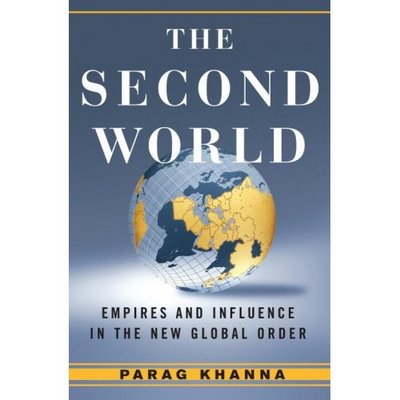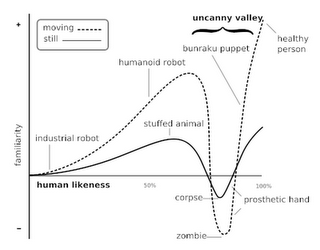 I finally finished The Second World by Parag Khanna this afternoon, mixed feelings but a positive feeling overall.
I finally finished The Second World by Parag Khanna this afternoon, mixed feelings but a positive feeling overall.
I started the book about two weeks ago, just after finishing Fareed Zakaria's Post-American World. Probably would have been better to get a break in between, maybe read a novel or two. Anyway it was interesting to read the two books in a row like that - they cover very similar territory but come out with very different conclusions.
Zakaria's main theme is the "rise of the rest" - that the growth in wealth and influence of China, India, Brazil and other developing nations is a restoration of balance to global politics. In particular he points out that this rise does not come at the expense of the United States. Zakaria reminds me of the Economist writers - free traders and optimists for the most part - and has high hopes for a freer future. Globalization is inevitable, but in the long run most countries will profit from it, rising out of poverty and into the 21st century.
Khanna's writings about the future revolve around the idea that there are (or soon will be) three superpowers on the planet - the European Union, China, and the United States. The Second World used to refer to the Soviet Union and its allied socialist countries, but Khanna makes it useful again, using it to refer to countries that cannot be defined as either first or third world. They are somewhere in between, and contain both millionaires and those in deepest poverty. These countries operate in relation to the three superpowers - their maneuvers are made with respect to actions taken by the larger states. They are crucial to the superpowers' imperial interests, whether it's in the form of energy, resources, border security, balancing out another superpower's ambitions, or for any other number of reasons, the big powers rely on these smaller countries to leverage more influence for their civilization.
I'd recommend the book just for its comprehensive look at the countries Khanna defines as the Second World - the sections are divided up by region, and then each chapter is dedicated to a country, covering every state in the second world. In addition to the book's enormous bibliography and notes (which takes up nearly a quarter of the book's pagecount), the author personally traveled to a large number of the countries he writes on, relating back opinions and stories from diplomats, businessmen, street vendors, and taxi drivers. When he writes on popular opinion in a country, he'll usually reference his own groundwork.
While I was pretty disappointed at the briefness of the Latin America section, I got a crash course on countries and regions that don't get much coverage in the media, and the country-by-country setup made what was otherwise an overload of information very readable. The section on Central Asia was especially informative, especially reading his dire predictions for Pakistan while Musharraf was resigning his position.

I guess it was hard for me to really get behind his three superpowers theory, it felt like a Cold War do-over with three players instead of two. While Zakaria considered Europe a region in stagnation and demographic decline, The Second World sees it as an emerging imperial force with a common foreign policy and enormous political clout. It didn't help that Russia was invading Georgia as I read "Within Europe today, Kurds are protected from Turks, Bosnians and Kosovars from Serbs, and Ukranians and Georgians from Russians, ... mak[ing] them work together as well." I guess I understood his reasoning behind listing the EU as a superpower, but it seems like it'll be a long time before Europe will act internationally as one nation. It was the generalization problems that is natural to a book this large in scope, but even for a book on international politics I thought he really made his three powers much more homogenous than needed.
I also think countries like India (which is dismissed almost entirely in just a few paragraphs), Brazil, and Russia fit awkwardly into Khanna's hierarchy of nations, and their role isn't dealt with in a satisfying way. The difference between some second world and third world countries often wasn't clear.
But it was definitely interesting reading on the idea of a non-American world (very different from post-American), as Khanna points out that America is starting to show trademark signs of a Second World country: enormous inequality, relatively lower standards of living, and so on. I thought it was a bit overblown, but maybe I was being defensive. After going through a long, pretty depressing list of America's ills, he confesses that America's greatest strength is its ability to reinvent and renew itself. By this time, however, he thinks it's too late.
I was listening to the DNC on the radio while I finished the book, and I wondered if the decline is really terminal or whether we just need a new president and fresh start to recover the glory. I mean, I hope so.
 Monday, September 1, 2008 at 12:15PM
Monday, September 1, 2008 at 12:15PM 







